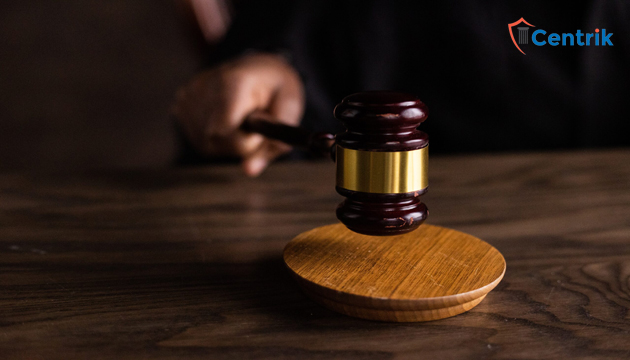
Status as on- 02/03/2023
The institution of a lawsuit or other legal action against a corporate debtor is prohibited by Section 33(5), but it has no bearing on the institution of a lawsuit or other legal action against a vessel owned by the corporate debtor because, according to the Admiralty Act, a vessel is treated as a separate legal person who can be sued separately from the owner of the vessel.
Facts of the Case
Angre Port Private Ltd filed an interim application under the provisions of order XIII-A read with Order XII Rule 6 of the Code of Civil Procedure, 1908 seeking a summary judgment against TAG 15 (IMO. 9705550), the ship owned by Tag Offshore Ltd. for a sum of Rs.9,37,19,098 together with interest at the rate of 18% p.a. from 18th December 2020.
The vessel was docked at the plaintiff’s port on February 13, 2019, and timely bills for berthing fees were raised, according to the plaintiff. In addition, the plaintiffs had covered various costs related to securing the ship in a storm. In the meantime, the IBC was used to liquidate the ship’s ownership corporation, and Defendant No. 2 was chosen as the liquidator. With the purpose of recovering the berthing fees and other expenditures, the plaintiff filed the admiralty lawsuit.
High Court Held
The High Court noted that Section 33(5) does not prohibit port authorities from utilizing the High Court’s admiralty jurisdiction to enforce their maritime claim against a ship or vessel that is in default and to recover the amount of the claim from the ship through an admiralty sale of the vessel and for payment out of the sale proceeds. Although the vessel or ship is recognized as a different legal entity, section 33(5) only prohibits suits or legal proceedings against the corporate debtor in liquidation and not any suits or legal proceedings against the vessel or ship of the corporate debtor under the Admiralty Act.
When a liquidation order is issued against a corporate debtor, sub-section 5 of Section 33 provides that, pursuant to Section 52, no lawsuit or other legal action may be brought by or against the corporate debtor. The rights of secured creditors in liquidation proceedings are covered by Section 52. According to the proviso to Section 33(5), the Adjudicating Authority must first give the Liquidator permission before starting any legal action on behalf of the Corporate Debtor.
It is evident upon reading Section 33(5) that this clause merely forbids the filing of a lawsuit or other legal action against the Corporate Debtor. It in no way precludes the filing of a lawsuit or starting another legal action against a ship or vessel owned by the corporate debtor when using the High Court’s admiralty jurisdiction because, according to the Admiralty Act, the ship or vessel is treated as a separate legal person who can be sued without bringing the owner of the said ship into the case.
The action against the vessel under the Admiralty Act, is an action in rem and a decree can be sought against the vessel without suing the owner of the said vessel. The purpose of an action in rem against the vessel is to enforce the maritime claim against the vessel and recover the amount of the claim from the vessel by an admiralty sale of the vessel and for payment out of the sale proceeds.
It is the vessel that is liable to pay the claim. This is the fundamental basis of an action in rem. The Claimant/Plaintiff is not concerned with the owner, and neither is the owner a necessary or proper party. In other words, the presence of the owner is not required for adjudication of the Plaintiff’s claim.
For this very reason, there is no requirement to serve the writ of summons on the owner of the vessel and the service of the warrant of arrest on the vessel is considered adequate.
For the purposes of an action in rem under the Admiralty Act, the ship/vessel is treated as a separate juridical personality, an almost corporate capacity having not only rights but also liabilities (sometimes distinct from those of the owner).
Conclusion
Section 33(5) of IBC doesn’t bar legal proceedings against a ship owned by Corporate Debtor in liquidation.
Disclaimer: The above article is based on the personal interpretation of the related orders and laws. The readers are expected to take expert opinions before relying upon the article. For more information, please contact us at ibc@centrik.in.




 join For Updates
join For Updates